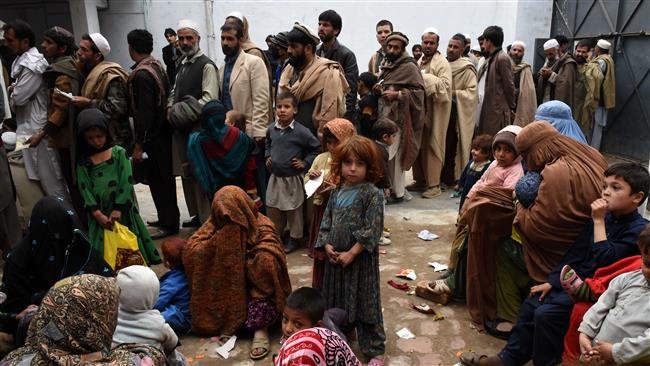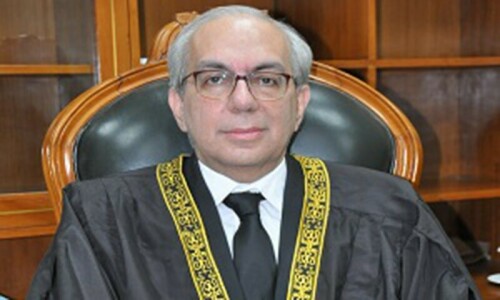Supreme Court’s Justice Munib Akhtar said on Tuesday that the rights of millions of people in the country were linked to elections and stressed that the public interest was in holding polls within 90 days.
The judge passed these remarks as a three-member bench heard the Election Commission of Pakistan’s petition asking the top court to revisit its April 4 order of holding polls to the Punjab Assembly on May 14.
The bench hearing the plea comprises Chief Justice of Pakistan Umar Ata Bandial and Justices Ijazul Ahsan and Akhtar, the same bench that had issued the order for holding elections in Punjab on May 14.
During the previous hearing, Chief Justice of Pakistan (CJP) Umar Ata Bandial had expressed hope that talks between the coalition government and the PTI could end the stalemate on holding polls in the country.
At the outset of the hearing today, ECP lawyer Sajeel Swati came to the rostrum and said that the federal and Punjab government had submitted their responses in the case, which was obtained by the electoral watchdog today.
“I think the PTI has not submitted its response yet,” the CJP said, to which Swati stated that ECP had yet not received the responses of PTI or any other political party.
“Please give us a chance to review all the responses,” the ECP lawyer requested. However, Justice Bandial asked Swati to present his arguments in the case.
“If you want to raise any new point in the next hearing, you can do it,” the top judge remarked, asking about the new grounds that could be taken in the review petition.
Subsequently, Swati started presenting his arguments. He contended that the jurisdiction of ECP’s review petition was not limited to constitutional cases, saying that the top court’s jurisdiction could be extended but not reduced.
In cases pertaining to reviews, the SC’s jurisdiction is limited to civil and criminal cases, the lawyer said.
Here, Justice Ahsan pointed out that approaching courts for fundamental rights was regarded as a civilian case. “But proceedings under Article 184(3) are not civil in nature,” Swati argued.
The judge responded that one section of Article 184(3) falls under public interest and the other pertains to fundamental rights.
“If a case linked to elections comes [to the SC] from the high court, will it not be a civilian case?” Justice Munib asked, to which the ECP lawyer said that the constitutional authority of a high court was greater than that of the apex court.
In a response submitted to the apex court today, the PTI called the ECP’s review petition “unjust” and “clearly outside its domain”.
“It is totally wrong and unjustified on the part of ECP to suggest that the Supreme Court has ‘fixed’ the date for polling itself and ‘assumed’ the role of a public body,” the party said.
It argued that the SC issued the April 4 order in light of the Constitution when the ECP announced withdrawing the election programme as “neither the Constitution nor the law empowers ECP to extend the date of election beyond 90 days as provided in Article 224(2) of the Constitution”.
The party termed the ECP’s allegation that the Supreme Court has “breached the principle of trichotomy of powers” as a “totally unjustified accusation”. It said that the interpretation and implementation of the Constitution was the “duty and obligation bestowed by the Constitution itself upon the Supreme Court”.
The PTI also argued against the ECP’s claim that it was empowered to announce the election date according to Article 222 of the Constitution and highlighted that the apex court had already held in its March 1 verdict that “it is the president who is to announce the date of election to the Punjab assembly under Section 57 of the Election Act, 2017”.
It said the top court had “already decided that there is no conflict between Section 57 and Article 222 of the Constitution and that ECP does not have the power to give a date of election”.
The response also rebutted ECP’s argument that the “Supreme Court is not an appellate forum over decisions of ECP”. It contended that ECP’s decisions were subject to the jurisdiction of the SC under Article 184(3) (original jurisdiction of Supreme Court) of the Constitution as well as Article 199 (jurisdiction of high court) of the Constitution.
Arguing against the ECP’s reasoning that the “political parties are at loggerheads and the security risks are dire”, the PTI said the “ECP is urging the Supreme Court to apply the doctrine of necessity”, which it said was dead and cannot be revived.

















